Quotes & Sayings About Encouraging Students
Enjoy reading and share 19 famous quotes about Encouraging Students with everyone.
Top Encouraging Students Quotes
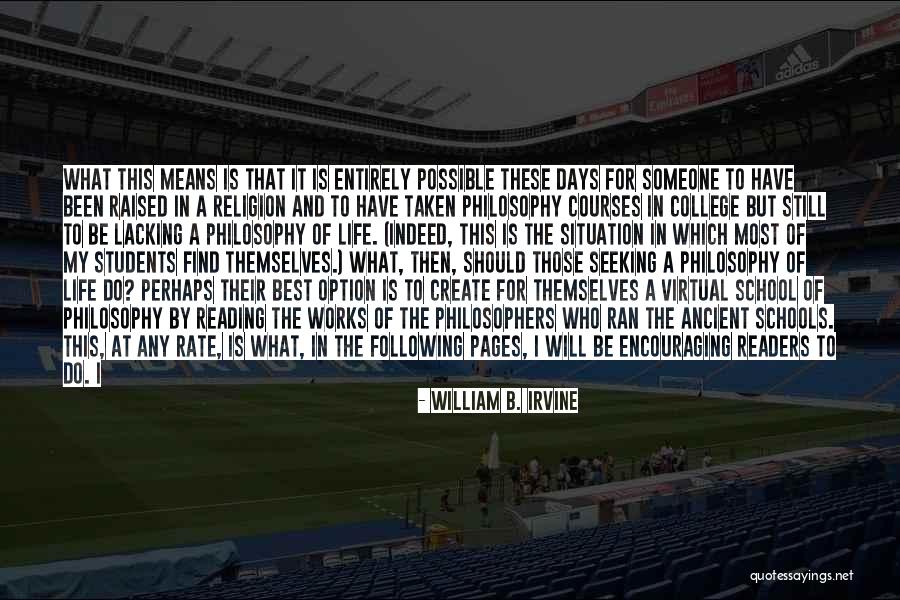
What this means is that it is entirely possible these days for someone to have been raised in a religion and to have taken philosophy courses in college but still to be lacking a philosophy of life. (Indeed, this is the situation in which most of my students find themselves.) What, then, should those seeking a philosophy of life do? Perhaps their best option is to create for themselves a virtual school of philosophy by reading the works of the philosophers who ran the ancient schools. This, at any rate, is what, in the following pages, I will be encouraging readers to do. I — William B. Irvine
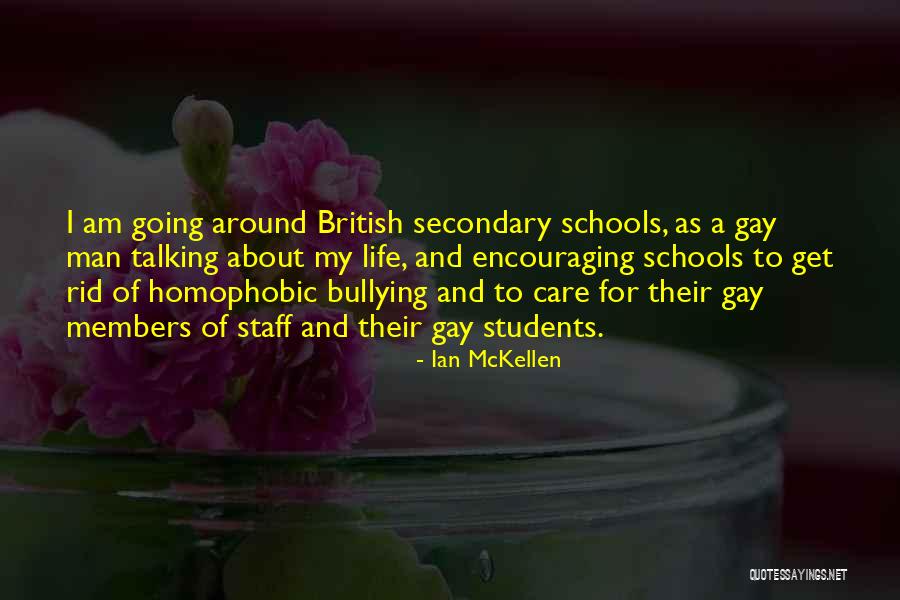
I am going around British secondary schools, as a gay man talking about my life, and encouraging schools to get rid of homophobic bullying and to care for their gay members of staff and their gay students. — Ian McKellen
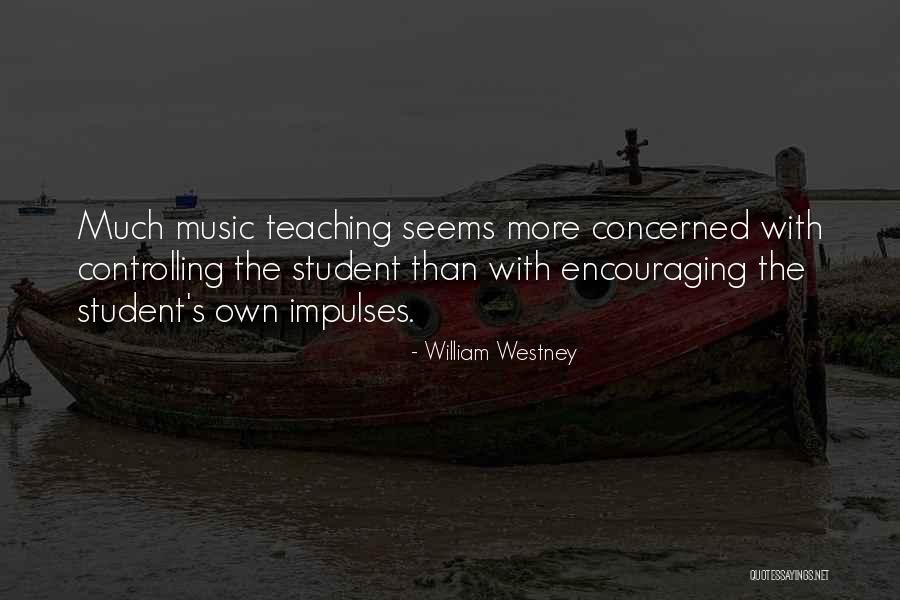
Much music teaching seems more concerned with controlling the student than with encouraging the student's own impulses. — William Westney
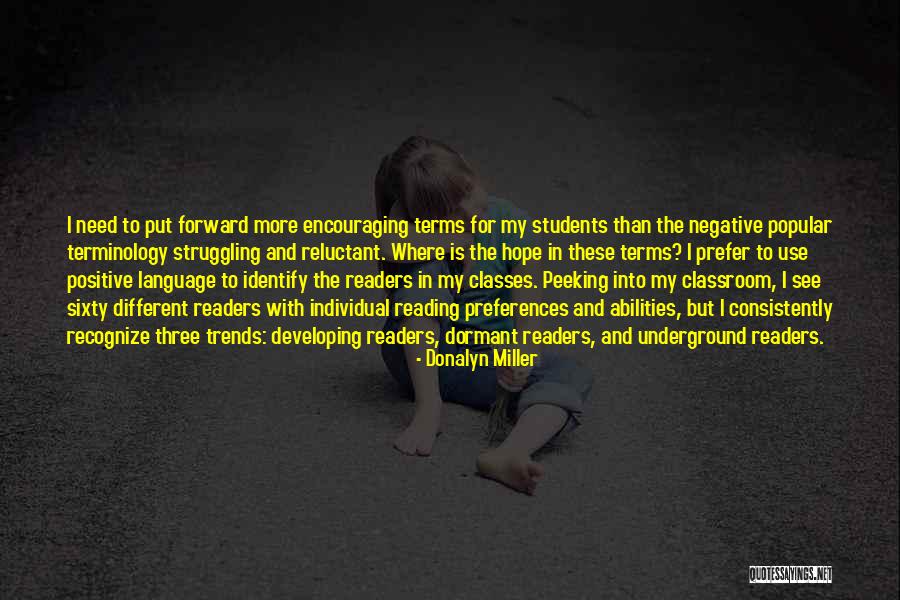
I need to put forward more encouraging terms for my students than the negative popular terminology struggling and reluctant. Where is the hope in these terms? I prefer to use positive language to identify the readers in my classes. Peeking into my classroom, I see sixty different readers with individual reading preferences and abilities, but I consistently recognize three trends: developing readers, dormant readers, and underground readers. — Donalyn Miller
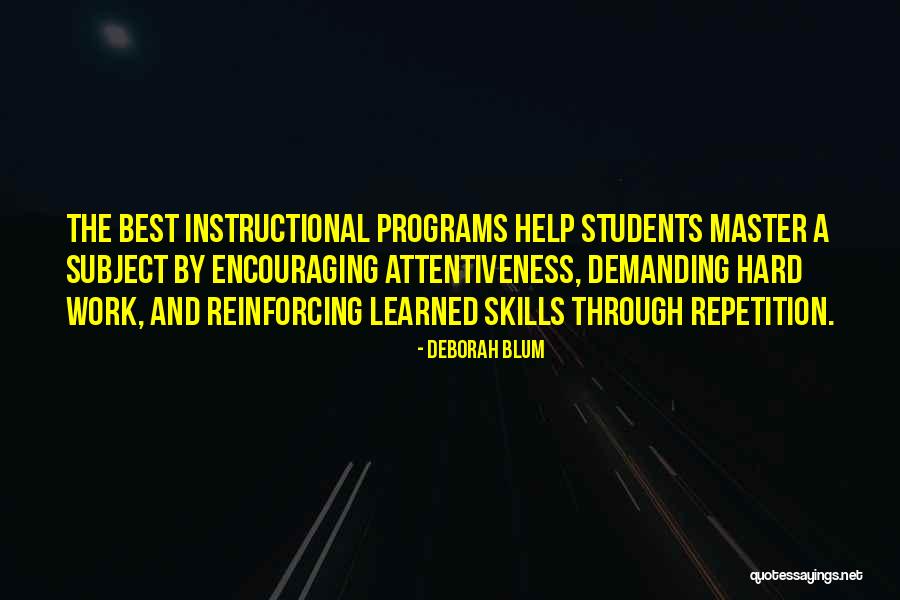
the best instructional programs help students master a subject by encouraging attentiveness, demanding hard work, and reinforcing learned skills through repetition. — Deborah Blum
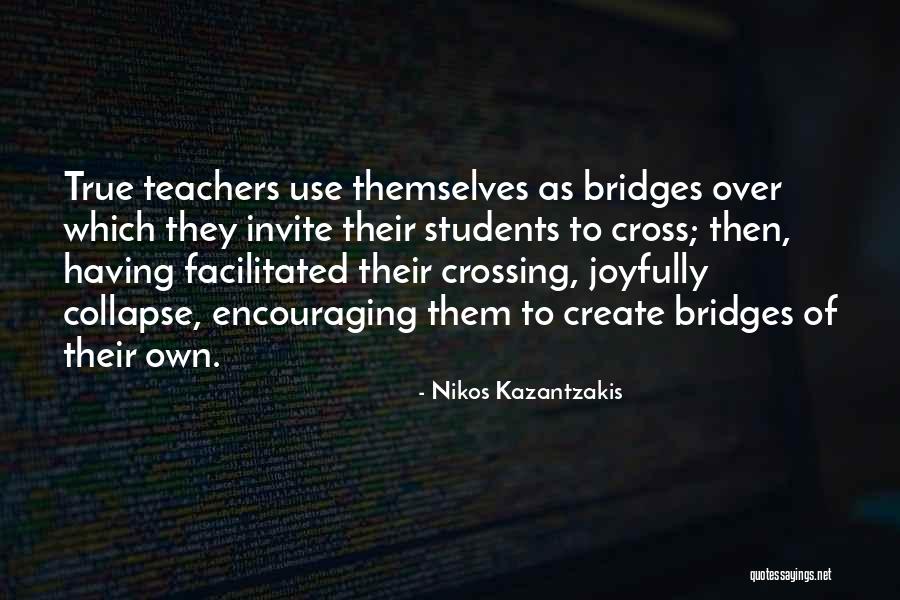
True teachers use themselves as bridges over which they invite their students to cross; then, having facilitated their crossing, joyfully collapse, encouraging them to create bridges of their own. — Nikos Kazantzakis
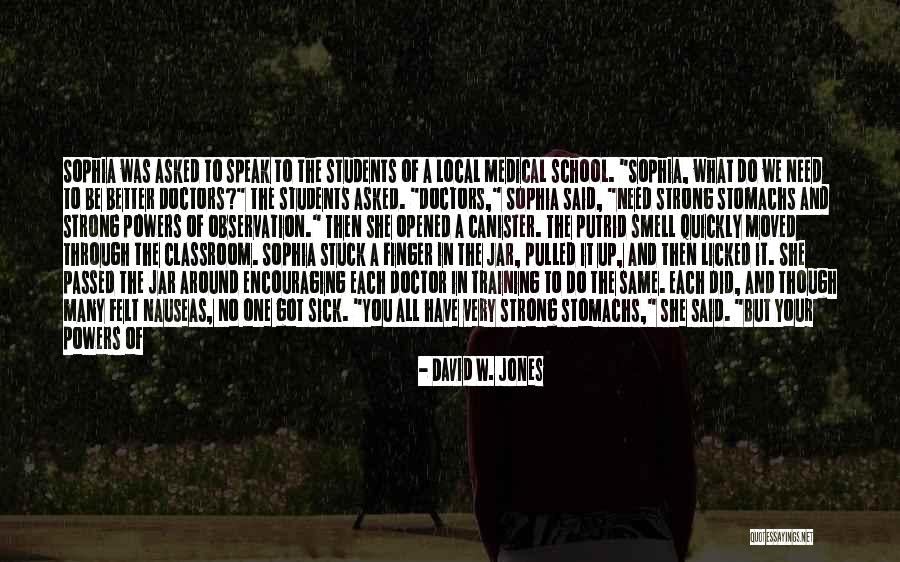
Sophia was asked to speak to the students of a local medical school.
"Sophia, what do we need to be better doctors?" the students asked.
"Doctors," Sophia said, "need strong stomachs and strong powers of observation." Then she opened a canister. The putrid smell quickly moved through the classroom. Sophia stuck a finger in the jar, pulled it up, and then licked it. She passed the jar around encouraging each doctor in training to do the same. Each did, and though many felt nauseas, no one got sick.
"You all have very strong stomachs," she said. "But your powers of observation need some work."
"What do you mean?" they asked. "We did just what you did."
"There is one difference," she replied. "The finger I dipped in the jar was not the finger I licked. — David W. Jones
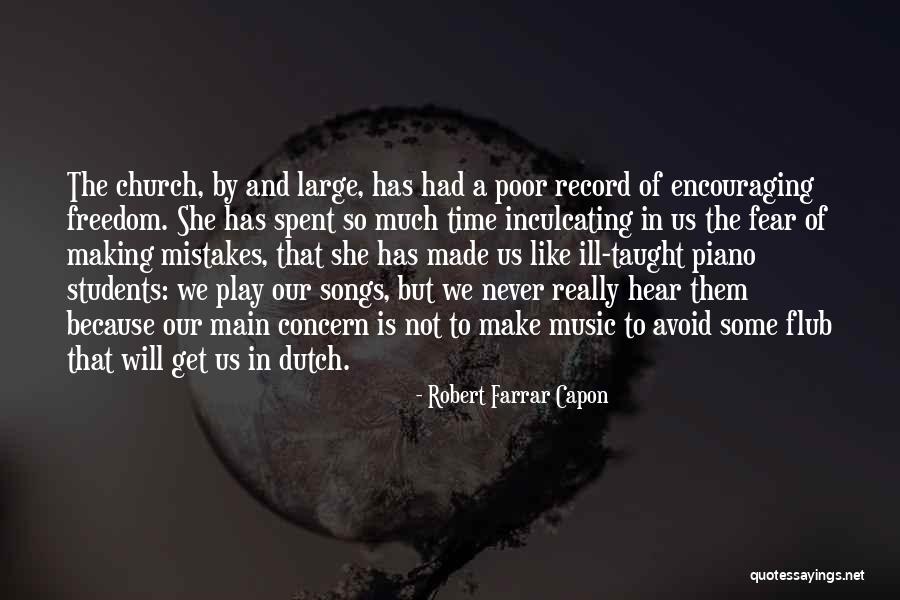
The church, by and large, has had a poor record of encouraging freedom. She has spent so much time inculcating in us the fear of making mistakes, that she has made us like ill-taught piano students: we play our songs, but we never really hear them because our main concern is not to make music to avoid some flub that will get us in dutch. — Robert Farrar Capon
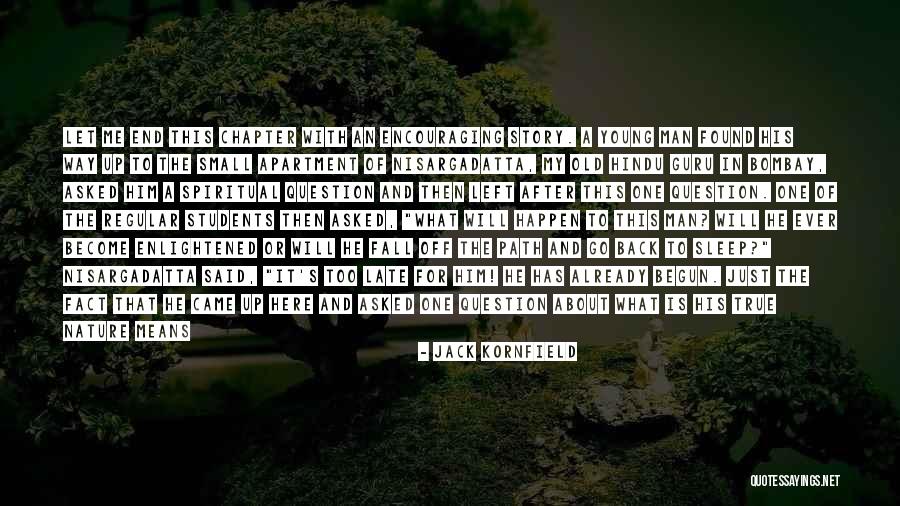
Let me end this chapter with an encouraging story. A young man found his way up to the small apartment of Nisargadatta, my old Hindu guru in Bombay, asked him a spiritual question and then left after this one question. One of the regular students then asked, "What will happen to this man? Will he ever become enlightened or will he fall off the path and go back to sleep?" Nisargadatta said, "It's too late for him! He has already begun. Just the fact that he came up here and asked one question about what is his true nature means that that place in him that knows who he really is has started to wake up. Even if it takes a long, long time, there's no turning back. — Jack Kornfield
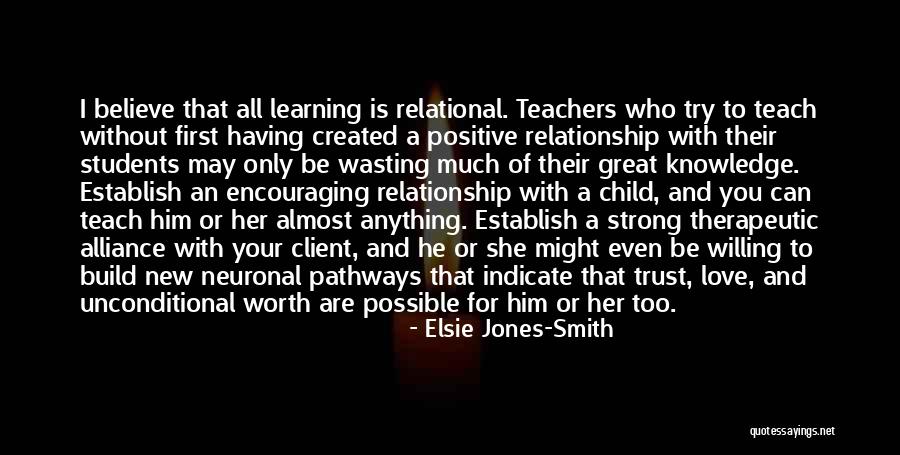
I believe that all learning is relational. Teachers who try to teach without first having created a positive relationship with their students may only be wasting much of their great knowledge. Establish an encouraging relationship with a child, and you can teach him or her almost anything. Establish a strong therapeutic alliance with your client, and he or she might even be willing to build new neuronal pathways that indicate that trust, love, and unconditional worth are possible for him or her too. — Elsie Jones-Smith
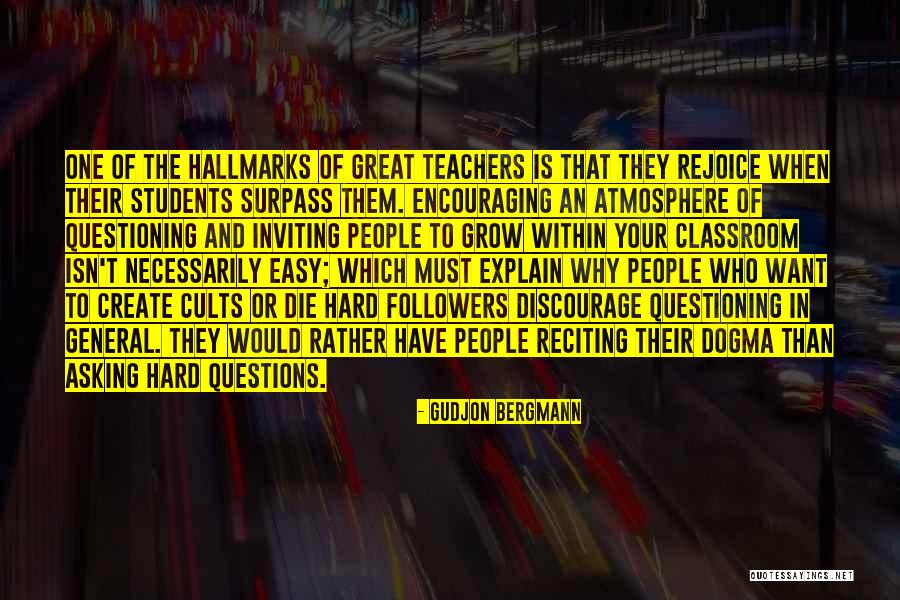
One of the hallmarks of great teachers is that they rejoice when their students surpass them. Encouraging an atmosphere of questioning and inviting people to grow within your classroom isn't necessarily easy; which must explain why people who want to create cults or die hard followers discourage questioning in general. They would rather have people reciting their dogma than asking hard questions. — Gudjon Bergmann
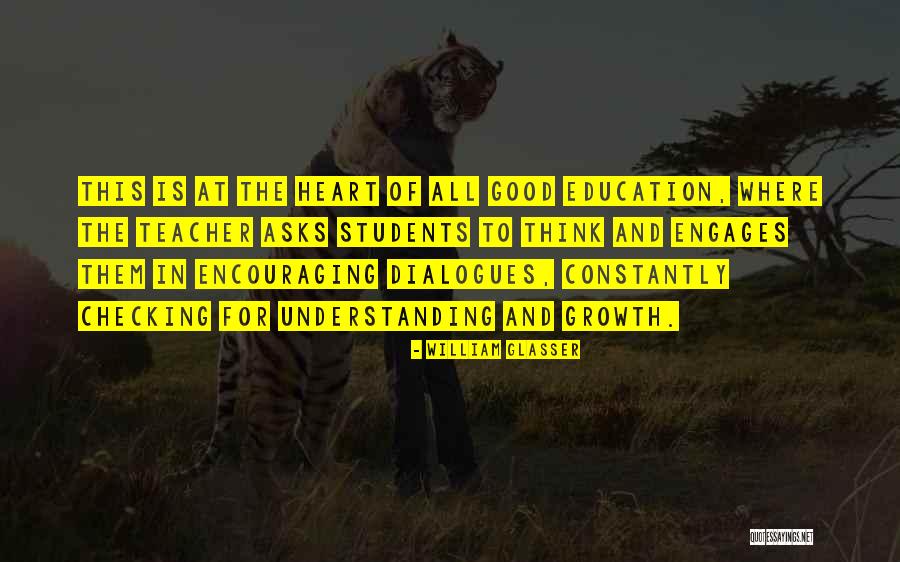
This is at the heart of all good education, where the teacher asks students to think and engages them in encouraging dialogues, constantly checking for understanding and growth. — William Glasser
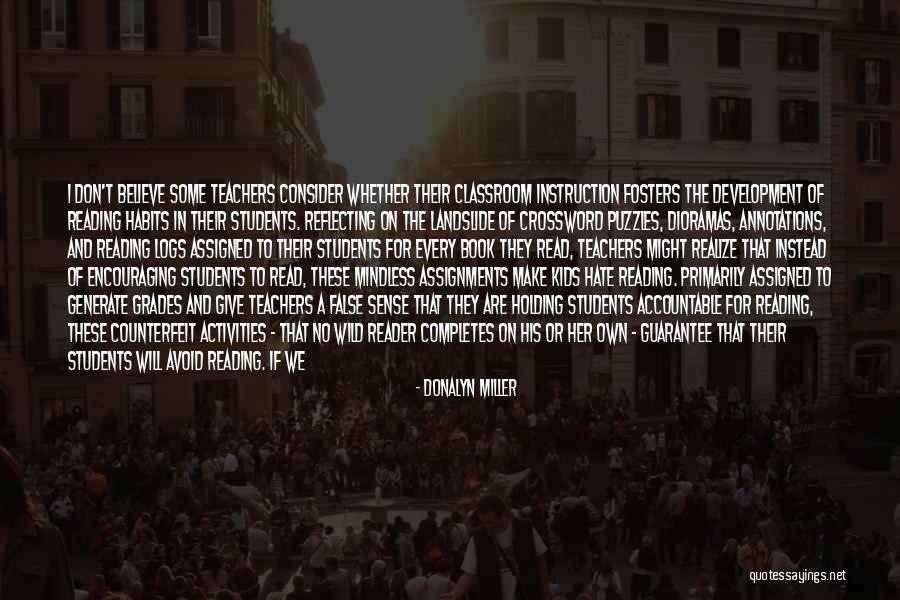
I don't believe some teachers consider whether their classroom instruction fosters the development of reading habits in their students. Reflecting on the landslide of crossword puzzles, dioramas, annotations, and reading logs assigned to their students for every book they read, teachers might realize that instead of encouraging students to read, these mindless assignments make kids hate reading. Primarily assigned to generate grades and give teachers a false sense that they are holding students accountable for reading, these counterfeit activities - that no wild reader completes on his or her own - guarantee that their students will avoid reading. If we care about our students' reading lives, we must foster their lifelong reading habits and eliminate or reduce the negative influences of classroom practices that don't align with what wild readers do. — Donalyn Miller
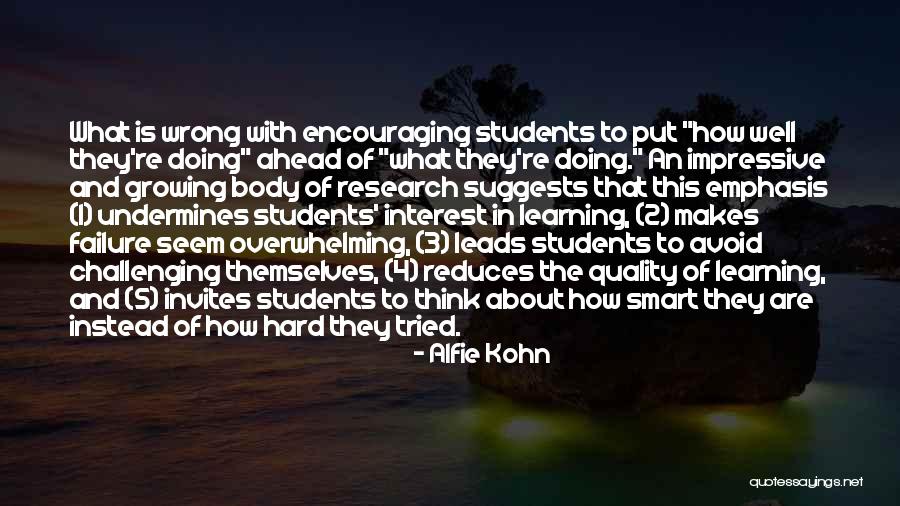
What is wrong with encouraging students to put "how well they're doing" ahead of "what they're doing." An impressive and growing body of research suggests that this emphasis (1) undermines students' interest in learning, (2) makes failure seem overwhelming, (3) leads students to avoid challenging themselves, (4) reduces the quality of learning, and (5) invites students to think about how smart they are instead of how hard they tried. — Alfie Kohn
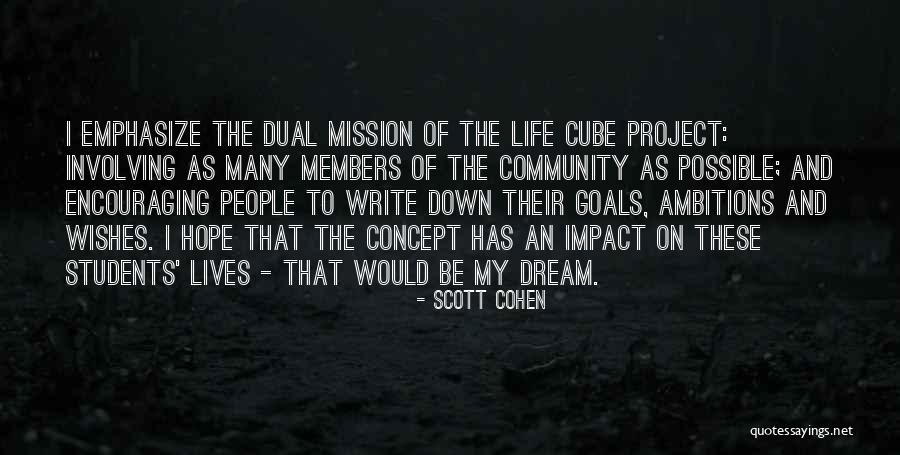
I emphasize the dual mission of the Life Cube Project: involving as many members of the community as possible; and encouraging people to write down their goals, ambitions and wishes. I hope that the concept has an impact on these students' lives - that would be my dream. — Scott Cohen
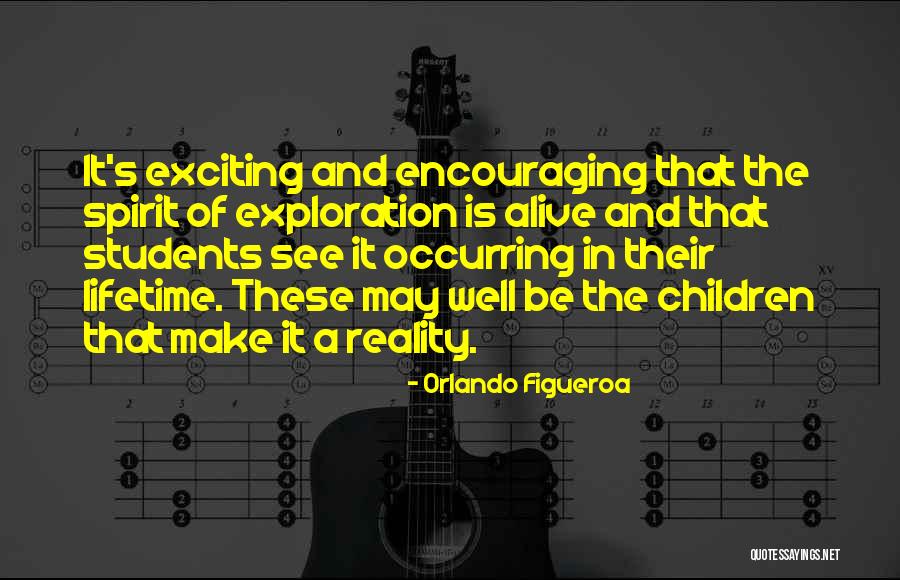
It's exciting and encouraging that the spirit of exploration is alive and that students see it occurring in their lifetime. These may well be the children that make it a reality. — Orlando Figueroa
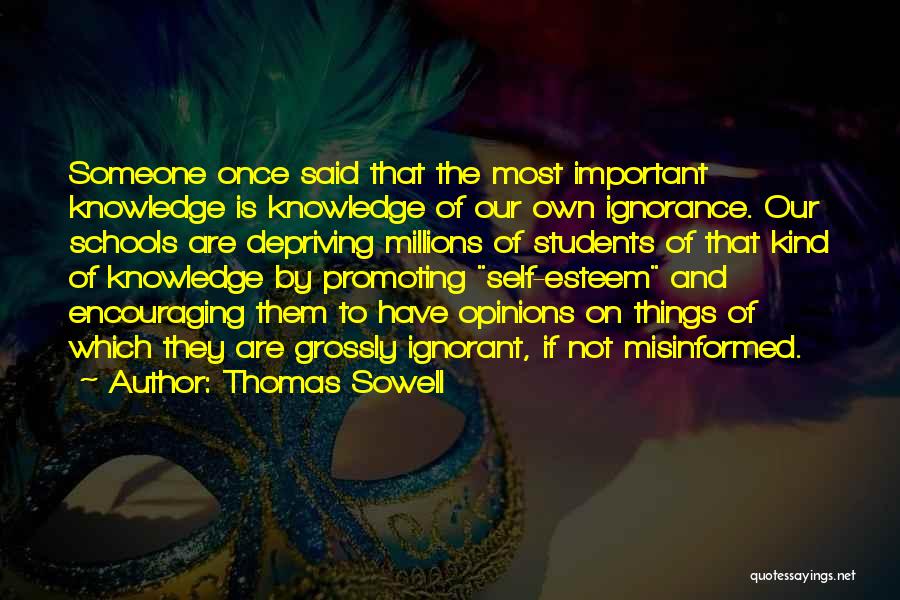
Someone once said that the most important knowledge is knowledge of our own ignorance. Our schools are depriving millions of students of that kind of knowledge by promoting "self-esteem" and encouraging them to have opinions on things of which they are grossly ignorant, if not misinformed. — Thomas Sowell

True teachers are those who use themselves as bridges over which they invite their students to cross; then, having facilitated their crossing, joyfully collapse, encouraging them to create their
own. — Nikos Kazantzakis
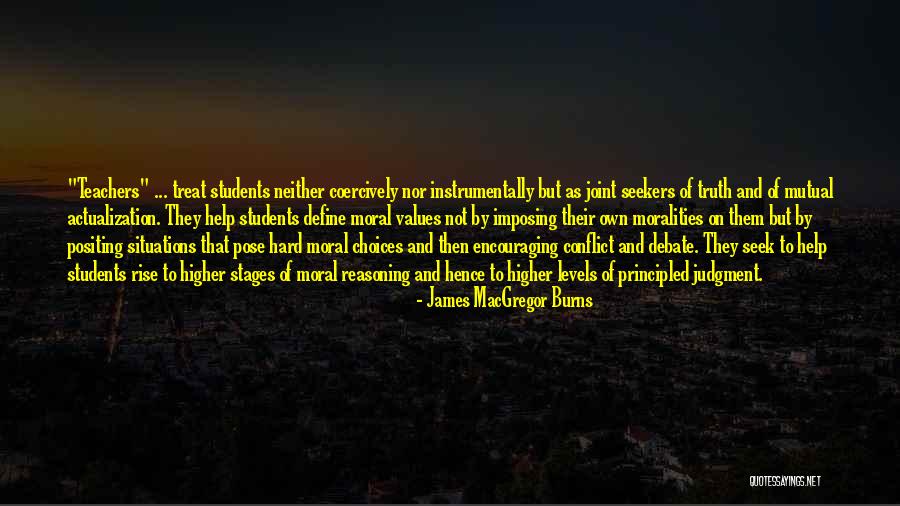
"Teachers" ... treat students neither coercively nor instrumentally but as joint seekers of truth and of mutual actualization. They help students define moral values not by imposing their own moralities on them but by positing situations that pose hard moral choices and then encouraging conflict and debate. They seek to help students rise to higher stages of moral reasoning and hence to higher levels of principled judgment. — James MacGregor Burns





